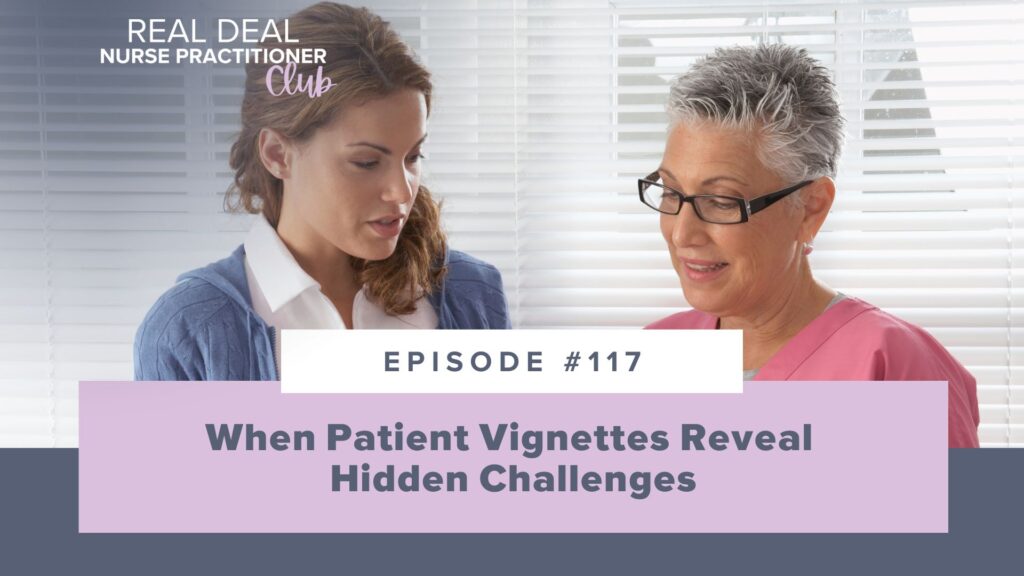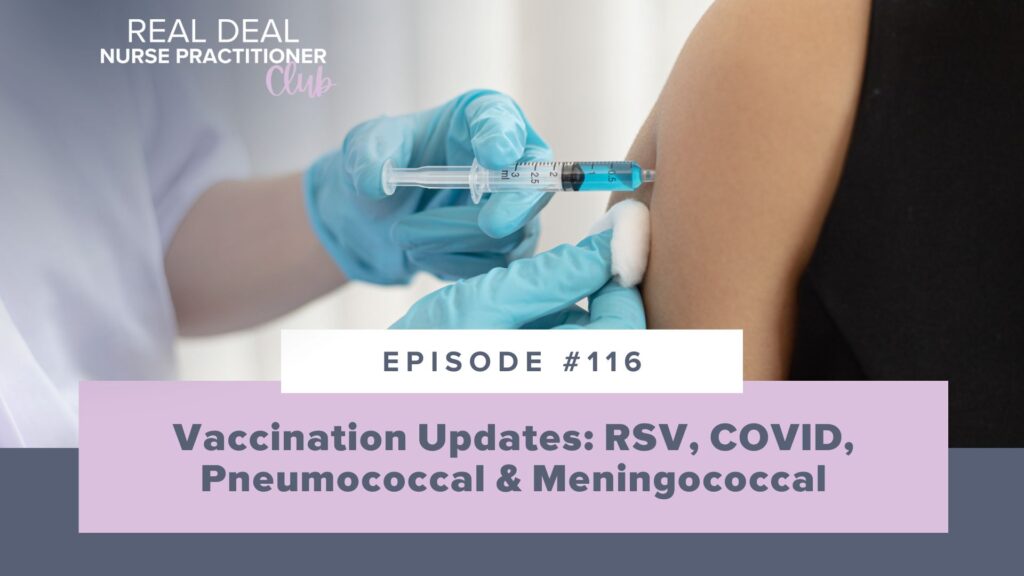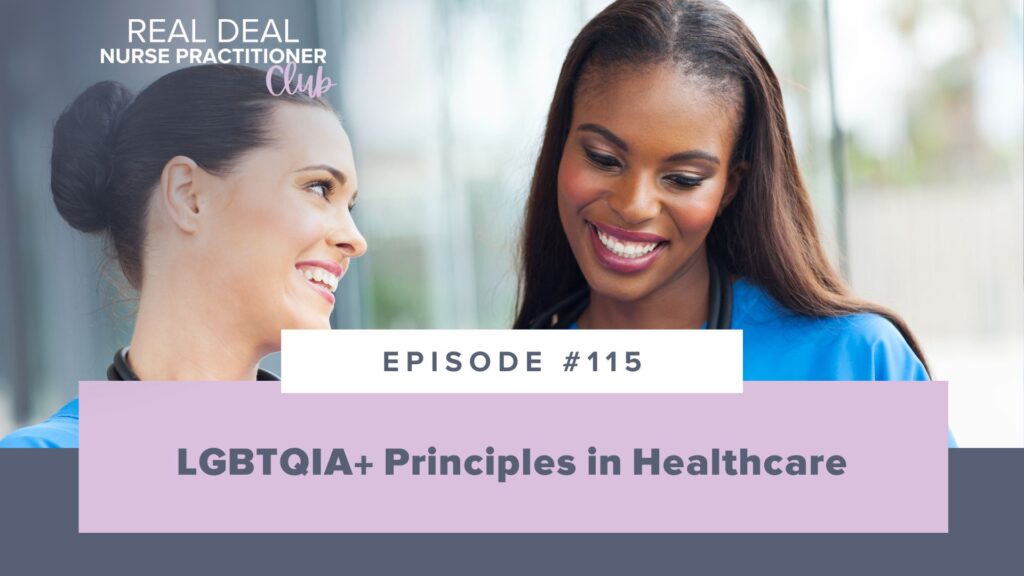![SMNP Blog - Ep #72: ANCC Update [NP STUDENT]](https://blog.npreviews.com/wp-content/uploads/2023/04/becoming-stress-free-nurse-practitioner-072-yt.jpg)
This is the first new episode I’ve recorded in a while, and I did intend on doing a little more of a personal episode after returning from maternity leave, but something super major has happened in the exam world that we need to talk about right now: ANCC just released their exam update.
This update has everyone in the student Nurse Practitioner world in a bit of a tizzy. I’m seeing it everywhere, so I’m breaking down the ANCC update and giving you NP students all the facts you need to know. There is always misinformation and rumors when something like this happens, but I’ve got you covered this week.
Tune in this week to fully understand what’s going on with the ANCC exam update. Everything I’m sharing in this episode is from ANCC themselves, so I’m unpacking and analyzing the new ANCC exam outline, what’s different, and I’m sharing why I think these updates are actually a great change.
If you’re looking for support, no matter what phase of your nurse practitioner journey you’re currently in, I have communities available for both students and new nurse practitioners. In these communities, we work to uplift one another and grow this profession together every day, so click here to check them out!
What You Will Discover:
- Why these updates to the ANCC exam aren’t something you should be afraid of.
- How everybody got super flustered last time ANCC updated their exam in 2019, but passing rates actually increased.
- What has changed with this update, and what hasn’t changed in the ANCC exam.
- Some of the misinformation I’ve heard around ANCC’s changes to their Nurse Practitioner exam.
- The goal of updating the exam, and why the questions you’ll get asked are now more relevant than ever to your work as a Nurse Practitioner.
- How my courses will help you with the tougher clinical content of the ANCC exam.
Featured on the Show:
- If you’re looking for extra support, I have communities available for both students and new nurse practitioners. Click here if you’re a student, and click here if you’re a new NP!
Full Episode Transcript:
Welcome to Becoming a Stress-Free Nurse Practitioner, a show for new NPs and students that want to pass their board exam the first time and make that transition from RN to NP as seamless as possible. I’m your host Sarah Michelle. Now, let’s dive into today’s episode.
Hey there, my friends, long time no see. It feels like it’s been forever since I’ve sat down to record a new podcast episode and I’m excited to be back. And I’m excited to record this because I know this is an episode that you guys are definitely searching for right now.
So while I originally intended to do a little bit more of a personal episode for my first episode back after maternity leave, something super major just happened in the exam world that we absolutely need to talk about today. And so that big thing is that ANCC just released their exam update, which has everyone in the student world in a bit of a tizzy.
I am seeing it all over the Facebook group and Instagram and everywhere else, reading tons of emails. And so my plan for today’s episode is to give you guys the facts. There’s so much misinformation and rumors that spread when something new happens and we just don’t exactly know what to expect. The information that I’m going to share with you in this podcast is 100% directly from the ANCC website.
I have pulled up their new exam outline, which my team and I have analyzed over the last few months getting ready for this. And if it makes you feel any better about the update, I think this is going to be a really great change.
These exams update traditionally every two to three years, and the last update to ANCC specifically was in 2019. Everyone got really flustered then too because we had this automatic assumption that the new exam was going to be so much harder. But settle in with me for this quick episode and let’s talk about why this actually isn’t something that we need to fear at all.
To start us off, one of the biggest things that I need you to hear from this episode is that the last time ANCC updated, passing rates actually increased. Hear that again because you heard me right, passing rates increased when ANCC updated in 2019. And they made a pivot away from as much professional role content in the exam.
So take a deep breath because what if the passing rate goes up again as a result of this update? And that’s a real possibility. Every time that they update these exams they were not to make it harder, but instead to make it more accurate in predicting who is going to be a safe and competent brand new nurse practitioner.
Also with the update the goal is to make the exam ask you about things that you’re actually going to be using in the work place. For several years now there’s been major confusion about things like asthma and COPD guidelines and which exam is using which guideline.
But we know with this big update the exam should be catching up to real life again instead of being behind. Which is awesome news for you because ideally now you shouldn’t need to learn two sets of guidelines and you can instead focus on what is most up to date. Which means less studying for you and less things to memorize.
So when we look at the new testing outline what exactly did change? We put the outlines side-by-side, we analyzed them piece by piece, and in regards to content layout the updated exam is slightly shifted around a bit.
What I mean by this is that the previous exam had four main categories: assessment, diagnosis, clinical management, and professional role. Within the update we have moved from four categories to five. These categories are now assessment, diagnosis, planning, implementation, and evaluation.
Do those categories sound familiar to you at all? Well they should because they are the fundamental steps of a nursing process that you learned way back in nursing school. And so it appears that ANCC is trying to create some uniformity between nursing and nurse practitioner.
And that makes a lot of sense because we have learned to sort into these different categories from day one as our time as nursing students. And basically what it looks like this ANCC update boils down to is just a reorganization of the exam. I think that’s really the simplest way to look at it.
And it does not mean that the professional role questions went away. Everyone keeps saying that, I’ve seen it everywhere. And I know students were hopeful for that in the update, but they have simply just moved those professional role topics under different categories, and they are very much absolutely still on your exam.
I do want to insert a side point here that professional role questions are not questions that you need to fear. I personally found them to be some of the easiest on my ANCC exam as they’re mostly root memorization, and therefore they’re easy points of either you know it, or you don’t. And if you have my courses, you should have the knowledge that you need to grab those points and move on to that tougher clinical content.
Now you may be wondering what each of these domains even encompasses. The 2022 outline breaks down each testing domain into a knowledge section and a skill section, outlining what types of questions and knowledge application that test takers can expect.
The assessment domain will include knowledge questions based around health promotion and screening. With skill questions on comprehensive history and physical assessment, more focused history and physical assessments, and functional and risk assessments. If these also sound familiar, they should, these are things you’ve likely been tested on and practicing even back in your nursing program.
The diagnosis questions include knowledge of different diseases. And the skills questions there are about how to test for and recognize abnormal test results. This can be as simple as asking about what tests would we do for a torn ACL? Or you might be presented with lab values and asked to interpret them.
And remember, ANCC does not give those lab values, those questions tend to be pretty straightforward. And so if you know your basic labs, you’re going to be golden for those too.
The domains of planning, implementation, and evaluation are where we see those traditional professional role questions come back into play. Planning questions may include knowledge based questions on primary, secondary, and tertiary prevention methods, anticipatory guidance, clinical guidelines, and lots of things revolving around pharmacology. Planning questions may also ask about culturally appropriate care, and research study design application.
Implementation questions are now the largest section of the exam, and it includes questions about legal and ethical care, procedures such as splinting or suturing, regulatory guidelines which includes things like what diseases are reportable, and then general questions about scope and standard of care.
Skill questions under the implementation domain include correct documentation, collaboration, therapeutic communication, things we are all well-seasoned in. And these are also likely topics that you have been asked about in your nursing programs way back as well.
The last domain, evaluation, has knowledge questions also on the pharmacological and non-pharmacological treatments and ethical and legal principles.
As you can see, many of the questions you will encounter on your exam will be topics or content you have been asked about over and over again throughout your time in school. Although the new testing domains may feel scary, they really and truly are just a redistribution of the same areas from before.
As always, the ANCC exam can include those alternative questions styles like matching, hot spots, pictures. But those questions do tend to be straightforward, they’re also not something to fear. There’s so much fear baked into the ANCC exam based on older versions of the exam where it was much more heavy into professional role.
But ANCC, as of last year, had a higher passing rate than AANP. Remember, when that fear pops up, you need to pause, do your own research, and look at the facts. Facts will trump fear every single time.
As far as content goes on the exam, there doesn’t really appear to be a lot of changes. You’re still going to see questions related to all the various body systems including cardiovascular, endocrine, GI, GU, HEENT, skin, musculoskeletal, neurology, psychiatric, reproductive, and respiratory. But there is now less emphasis on those hemopoietic and immune systems.
Medication questions will still focus on the same categories as before. And the age groups, like the old exam, are still broken up into infant, preschool, school age, adolescent, young adult, and young adult includes those emancipated minors, adult, older adult, and frail elderly. As you can see, these test topics did not change. So rest assured what you have learned in school and what you have learned in my courses will still be up to date with your exam topics.
I know this has been another major source of anxiety for students, will the courses match up to the new exam? But guys, we’ve been ready for this update for quite some time. We knew it was coming and so there is no need to worry about that whatsoever. We have got your back for this update.
We have already updated the courses way in advance of it because, like I said, we knew it was coming, right? And you are going to have the tools you need in the courses to help you succeed. And I know this was a quick episode, but that’s really the entire update, guys.
We don’t want this to be a source of anxiety for anyone. And we know change can feel so, so scary. But I also want you to know, like I just said, you have all the tools that you need to pass. And me and my team are here for you and rooting for you and we will support you through this update. So stick to the facts with me, don’t get lost in the rumors, study hard and you will pass your exam.
As an extra bonus, friends, if you’re looking for support, no matter what phase of your nurse practitioner journey that you’re currently in, I have communities available for both students and new nurse practitioners. In these communities we work to uplift one another and grow this profession together every single day. Links to join will be included for you in the show notes.
Thanks for listening to Becoming a Stress-Free Nurse Practitioner. If you want more information about the different types of support we offer to students and new NPs, visit https://www.npreviews.com/resources. See you next week.
Enjoy the Show?
- Don’t miss an episode: follow the podcast on Spotify, Apple Podcasts, Stitcher, or RSS.
- Leave a review in Apple Podcasts.
Search the Blog
Join our Facebook Group!
Get FREE support and encouragement from thousands of FNP/AGPCNP students and our NP Support team.
Learn More3 Study Hacks to Conquer Your NP Exam!
Download these tips that have helped thousands of students pass their NP board exams.
Download NowInstitutional Partnerships
Are you a faculty member and would like to bring Sarah Michelle’s resources to your school? Email us at nursinggroups@blueprintprep.com for special institutional pricing or click on the link below to learn more.
Learn MoreGroup Discounts
Are you a student and have 10 or more classmates interested in purchasing Sarah Michelle’s courses? Email us at nursinggroups@blueprintprep.com for special pricing.




